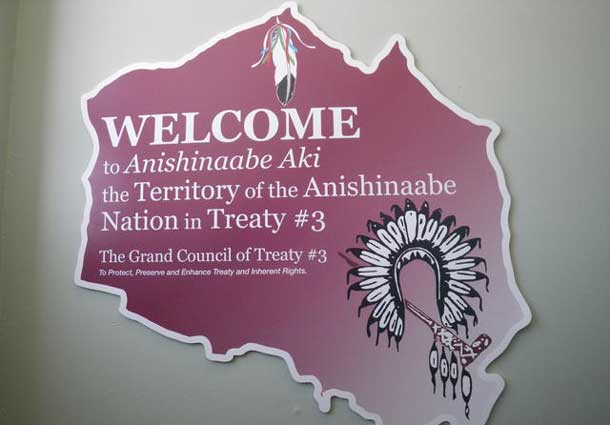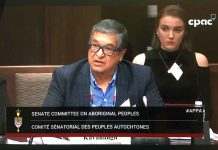 THUNDER BAY – Today Grand Council Treaty #3 instructed lawyers to file a motion with the Ontario Superior Court of Justice (Divisional Court) seeking intervenor status in the litigation concerning the Ontario government’s rollback of the province’s Health and Physical Education curriculum – more conventionally known as ‘sex-ed’.
THUNDER BAY – Today Grand Council Treaty #3 instructed lawyers to file a motion with the Ontario Superior Court of Justice (Divisional Court) seeking intervenor status in the litigation concerning the Ontario government’s rollback of the province’s Health and Physical Education curriculum – more conventionally known as ‘sex-ed’.
“Last week at our Fall Assembly, the Treaty #3 Chiefs gave us a mandate to pursue strategies which would ensure that the health curriculum taught to Indigenous youth reflects their unique circumstances and needs,” stated Ogichidaa Francis Kavanaugh, Grand Chief of Treaty #3. “One of our strategies for doing so is to ensure an Indigenous perspective is part of the sex-ed litigation unfolding in Toronto.”
In a statement issued by Grand Council Treaty #3, “In August, Education Minister Lisa Thompson directed school boards to set aside the 2015 curriculum. The interim curriculum put in place by the government is over 20 years old. It is silent on key topics for young people in 2018 – such as consent and safety issues related to online and mobile technology. Lawsuits that have since been initiated by the Canadian Civil Liberties Association and the Elementary Teachers Federation of Ontario allege that the government’s actions infringe the guarantees of equality and security of the person under sections 7 and 15 of the Charter of Rights and Freedoms”.
“Sadly, there continues to be no group in our society for which the interplay of this disadvantage and harm is more acutely and directly felt than that of Indigenous young people,” stated Douglas Judson, a lawyer and staff advisor with Grand Council Treaty #3. “We perpetuate the destructive legacy of residential schools – and the intergenerational trauma they left behind – when we deny Indigenous young people access to modern, fact-based health information that they are less likely than other kids to get outside of school.”
Indigenous young people are less likely than their peers to receive accurate health information from family or other mentors, are at increased risk of experiencing domestic and gender-based violence or abuse, often live in communities with limited health resources or infrastructure, and continue to experience difficulty accessing higher levels of education where further health resources or information may be available. Indigenous groups also demonstrate concerning sexual health statistics compared to other populations.
“Indigenous youths continue to be one of the most vulnerable groups in our society. One of our responsibilities in responding to crises like missing and murdered Indigenous women and girls and youth mental health, self-harm, and suicide must be to provide Indigenous young people with information about healthy and safe relationships, sexual orientation and gender identity, and resources related to consent and gender-based violence,” stated Kavanaugh. “By putting in place antiquated health curriculum, the Ontario government is abdicating that responsibility and putting our young people at risk.”
Affadavit Filed by Grand Council Treaty #3
2018 10 04 Affidavit of Grand Chief Kavanaugh by NetNewsLedger.com on Scribd
Grand Council Treaty #3 is the traditional government of the Anishinaabe Nation in Treaty #3 territory. The Treaty #3 region encompasses 26 First Nations in Northwestern Ontario and 2 in Manitoba. Grand Council Treaty #3 is represented by Gillian Hnatiw, John Adair, Stephanie Bishop-Hall, and Alex Fidler-Wener of Adair Goldblatt Bieber LLP.
###






